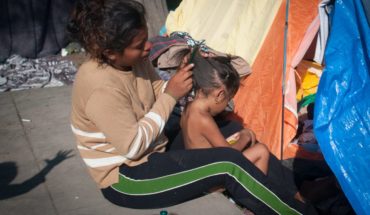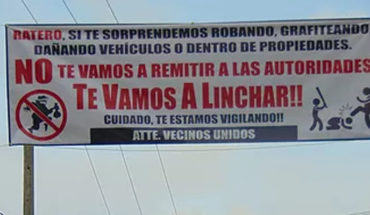It was last Thursday, June 23, when President Gabriel Boric traveled to the headquarters of the Democracy and Development Foundation, to hold a meeting with former President Ricardo Lagos. With the aim of discussing “Chile and its challenges,” the President justified this meeting by assuring that “the history of our Republic is always greater than each of us separately, and it is good to listen and learn from those who preceded us.” A signal that, according to analysts, sought to build bridges to a sector of the former Concertación where Lagos occupies a leading position, and that would allow the current government to extend its base of support, considering the challenges of carrying out its program of structural reforms and leading the transition to a new Constitution, whatever the result in the next exit plebiscite.
Much of the questioning generated by this gesture of rapprochement between President Boric and the world of the former Concertación, pointed above all to the critical vision that the Head of State himself had in the past towards the way in which, in his opinion, governments such as the one headed by Ricardo Lagos simply administered the neoliberal model, emerged in dictatorship. It was in September 2016, that a then Deputy Boric said that, according to his opinion, “Lagos is part of those who have generated the unrest that the people of Chile are going through today and I believe that he is in a contrary position of those who suffer from that discomfort.” He also pointed to him as one of those responsible for student indebtedness, around his role in the creation of the Credit with State Guarantee, along with his former Minister of Education, Sergio Bitar, and the former head of Finance, Nicolás Eyzaguirre. The latter, who appears as one of the most recent “signings” of the Boric government, in the Ministry of Housing, fulfilling financial advisory tasks.
Analysts and members of the political committee of the current government de-dramatize this “turn” in the speech of a Gabriel Boric who, in his opinion, has assumed in recent years a role of political leadership that entails assuming mistakes, running risks and crossing the path in search of transversal political agreements. It was this type of decision that led him to be one of the few politicians in his sector who signed the agreement of November 15, 2019, which opened the way to the constituent process, and for which he was strongly criticized, in the heat of social protest. He was also questioned when he understood that to triumph in the presidential second round he had to add political forces that were not part of his original coalition, such as the so-called Democratic Socialism and that groups parties linked to the former Concertación or former New Majority, such as the PPD (founded by Lagos himself), the PS, the PR, the PL and the New Deal (NT) platform.
Now, on the eve of the plebiscite to exit the constituent process, the so-called center-left appears divided, between those sectors that strongly support the Approve option, those who seek to approve with the perspective of “improving” or “reforming” the proposal for a new Constitution, and those faces who have decidedly chosen to lean towards Rejection. In an atmosphere of division and tension, the president himself has made it explicit that the Government must put itself in all scenarios, and that its program will continue to be executed, whatever the result of the plebiscite on September 4. In a polarized climate, and considering that both pro-government coalitions (I approve Dignity and Democratic Socialism) fail to gather the parliamentary majorities necessary for the bills promoted by the Executive to achieve a successful procedure in Congress, from the Palace they assume that opening up to talks with other sectors is indispensable. In the construction of this strategy, President Boric has shown himself willing to bring together those progressive sectors – linked to the former Concertación or former New Majority – that can add political experience to a cabinet that, for the most part, lives its first experience as government authorities.
For political analysts, this gesture alludes to an “awareness” and pragmatism on the part of the president, and that is also related to speculation about a possible change of cabinet, which according to recent statements by the spokeswoman minister Camila Vallejo and President Boric himself, would not materialize before September 4. In an official activity in Viña del Mar, andOn Thursday, the head of state said that “everything is perfectible” and that his ministers are in “constant evaluation.” Faced with the possibility of an imminent ministerial adjustment, he said that “I am not evaluating it for now, it is a discussion that we will have after the plebiscite.” A change of cabinet that could eventually have the protagonist the Minister of the Interior, Izkia Siches, who is close to the President and was one of the important faces in his presidential campaign. This possibility opens the appetite of the parties of Democratic Socialism, and even of some sectors linked to the former Concertación, who would be willing to contribute with their “political experience” to occupy one of the most sought-after positions and with greater public exposure in La Moneda. A strategy that recalls the appointment of Jorge Burgos in the Interior Ministry in 2015 – in the second Bachelet government – who came to replace Rodrigo Peñailillo – criticized for his link to the SQM case and the handling of the Caval case. After a year of management, Burgos finally decided to resign from his position, amid disagreements with the president and an experience of which they do not have good memories in bacheletismo.
In this sense, the recent incorporation of the former Minister of Finance and Education, Nicolás Eyzaguirre (PPD), as an advisor in the Housing portfolio, at the express request of Minister Carlos Montes, is a reinforcement of these lines of collaboration drawn up inside the Palace, and that generate certain discrepancies in some official parties – specifically of Apruebo Dignidad – where they support the idea that the Government program is based on the overcoming of the model neoliberal, and that those who join the Executive, either as advisors or in managerial positions, must necessarily subscribe to that vision of doing politics. While some militants celebrate the political breadth for which the President has bet, others note the difference between the former Concertación and the former New Majority, this last experience being necessarily linked to the figure of former President Michelle Bachelet, who expressed her support for Boric in the face of the presidential second round, and that it has shown its position in favor of a new Constitution.
Precisely, in relation to the link between the “bacheletismo” and the current Government, at least 14 names of people close to the former president and who played an important role in the presidential campaign of Gabriel Boric or who currently occupy some government position can be detected. On this list are the current ambassador of Chile to the UN, Paula Narváez; Bachelet’s former press chief and accused as the architect of the link between Boric and the former President, Haydeé Rojas; the former minister of the Segpres and current advisor to the Undersecretary of the Interior Manuel Monsalve, Gabriel de la Fuente (PS); the former adviser to the Undersecretariat of the Interior and current chief of advisers to the presidential cabinet, Lucía Dammert; and former Environment Minister, bachelet’s former chief of staff and current adviser to Interior Minister Izkia Siches, Ana Lya Uriarte. In addition, among those who make up the current ministerial cabinet are: the former Undersecretary of Health and current Minister of Social Development, Jeannette Vega (PPD); the former Undersecretary of Social Security and current Minister of Labour and Social Welfare, Jeannette Jara (PC); and the Head of Environment and appointed in 2018 by Michelle Bachelet as representative of the Presidency for the Permanent Presidential Advisory Commission on Climate Change, Maisa Rojas (Independent).
The arrival of Ana Lya Uriarte, one of the surviving faces of bacheletismo
Last Wednesday, Wednesday, Wednesday, what was then an open secret was made public. The lawyer and socialist militant Ana Lya Uriarte, froze her functions as director of the Horizonte Ciudadano Foundation – created by Michelle Bachelet in 2018 – to assume as chief of staff of the Minister of the Interior, Izkia Siches. The arrival of Uriarte, in the midst of the crisis of advisers of the minister – which meant the departure of Roberto Estay from the portfolio – was justified, to a large extent, by the closeness he generated with Siches prior to his appointment and in his first two months of management, when he provided advice and in this way, they strengthened ties, that facilitated his arrival at the ministry. An appointment that generated criticism, coming mainly from Apruebo Dignidad, in relation to her concertacionista past, her policy of secrecy and secrecy when she served as chief of staff of former President Bachelet in her second Government, and her link with one of the edges for fraud in the Caval case.
Particularly, it draws the attention of some pro-government militants the eventual role that Uriarte may have had, in the reports she made – in her capacity as a lawyer – for the company, owned by Bachelet’s former daughter-in-law, Natalia Compagnon, in 2012, and for which she would have charged $20 million pesos. An edge by which the current advisor of Minister Siches is summoned to testify on October 4, as a witness, in the Oral Criminal Court of Rancagua, along with those who were the controllers of the bustling enterprise: Mauricio Valero, Natalia Compagnon and Sebastián Dávalos, according to information available on the website of the Judicial Power.
In this regard, and in an attempt to give explanations, Uriarte said through a letter, that “the relationship with Caval developed between the months of May and July of the year 2012, is duly rendered, and during its development prevailed a strictly professional treatment and attached, also strictly to the terms in which legal advice of an exclusively environmental nature was requested (…) I have done nothing more than provide professional services within the scope of my specialty, within the ethical and legal framework, with no other pretension than to legitimately exercise my profession, without there having been any conflict of any kind in such action”.
The truth is that beyond the criticism generated by his landing in the Ministry of the Interior, Uriarte – who maintains a close relationship of friendship with former President Bachelet – came to the Government with the aim of improving the management of the cabinet headed by Minister Izkia Siches. His political networks within the ruling parties, especially Democratic Socialism, allow him to contribute experience in the state apparatus, which is something that the FA does not have, and that President Boric is concerned about. Her undeniable link with bacheletismo, in any case, sets off alarm bells within some sectors of Apruebo Dignidad, in relation to the policy of secrecy that characterized the last stage of the former president in La Moneda, when Uriarte was her main advisor and chief of staff. Some militants also question the real impact that the role of the lawyer has had in these two months of management, and whether or not she has managed to transfer her political experience to Minister Siches, harshly criticized at first.
In this regard, the columnist of El Mostrador, Germán Silva Cuadra, considers that “the gestures towards bacheletismo have been mutual, after the announcement of the former President of her return to the country, which is obviously to fulfill a role after the plebiscite, to prosecute what is going to come next, which is going to be very complex. In that sense, bacheletismo within the Government has added key figures, so the signals are very clear and concrete about this rapprochement, and I have the impression that President Boric is preparing an opening of the coalition, whether the Broad Front and the PC like it or not, which means incorporating what was the most progressive New Majority, that is evidencing its positions on the Approval. The problem that exists now, in times of social, political and economic uncertainty, what citizens demand are certainties. So if there is anyone who could be uncomfortable with this opening, it is precisely the Broad Front, considering that the Communist Party was part of the Government of former President Bachelet.”
The recent signing of Nicolás Eyzaguirre, on the ledge between the former Concertación and bacheletismo
On the arrival of figures such as Ana Lya Uriarte, and the recent incorporation of Nicolás Eyzaguirre as an advisor to the Minister of Housing, Carlos Montes (PS), the member of the expanded political committee of the Government and president of the FRVS, Flavia Torrealba, points out that she would make a distinction between bacheletismo and the former Concertación, the latter being sector, from where, in his opinion, “emanate all these people who are in the group of the “yellows” or strongly opposing the transformations posed by the new Constitution. On the contrary, Torrealba believes that “bacheletismo was a sector that promoted changes and that had a very progressive tone, which was finally hindered by a transversal party, which opposed the fundamental changes. So I would make the first distinction, therefore, of course it is much easier to relate to the bacheletista sectors, and not so to some sectors of the former Concertación, which, in any case, does not perish me that the most conservative are participating in the Government.
Nicolás Eyzaguirre seems to be on a border between both worlds that the ruling party prefers to differentiate: the former Concertación and the former New Majority or bacheletismo. The economist and militant of the PPD has a vast political experience and served as Minister of Finance in the Government of Ricardo Lagos, a position that he would repeat in the second term of Michelle Bachelet, where he alsoit summed the portfolios of Education and Segpres. Who was pointed out by the then deputy Gabriel Boric as one of those responsible for indebtedness in higher education, around the creation of the Credit with State Guarantee, responded to the call of the Minister of Housing, Carlos Montes, and will assume a specific role related to the financing of social housing and advice on the tax debate.
Trying to explain this nomination, Minister Montes said that “it is a concern that I have always had. The Ministry of Housing is disconnected from the financial market and the tax issue, and from here no ideas or proposals arise in the face of this. I talked about this issue with different people from the Government, I examined the background of people who proposed me and I came to the conclusion of incorporating someone more fogueado and with more experience in these issues, and I spoke with Nicolás Eyzaguirre, “says Minister Montes.
The specific task that Montes gave to Eyzaguirre is to be in charge of linking the financing of social housing with the financial market. In that sense, the Ministry aims to build 260,000 homes in the four years to partially alleviate the deficit that is estimated at 600,000 homes, which has been formed over a long period of time and which, as explained by the Housing portfolio, deepened with the pandemic and the arrival of migrants. A difficult challenge for an economist who in the context of the recent presidential definition, pointed out to Ex-Ante that “the great difficulty if Boric wins will be to control spending pressures”, warning about the risk of “spending before collecting”, which in his opinion, could produce a fiscal problem, against which, believes that you have to have the “iron fist”.
In relation to the recent incorporation of Eyzaguirre, the academic, political analyst and director of the School of Government and Communications of the Central University, Marco Moreno, believes that there is a risk – in terms of image – associated with this approach to the former Concertación, but that is related to the constant search of President Boric to find a viable strategy of political survival, that forces him to open up to other sectors in order to have control of power. “Here there is an attempt at balance and balance for this attempt at political survival by the president, considering that he was willing to sign the agreement of November 15, 2019, crossing the line, because he understood that this allowed him to remain in force – politically speaking – and be a relevant actor. And today the same thing, he has to somehow calibrate the cost of being with figures of the center-left, which could be contradictory for his constituents, but obviously the President has to be able to play his own strategies, and that is what we are observing, “said Moreno.
In this regard, the analyst believes that “somehow, the President has been trying to approach this world for some time, but when he does, he meets the opposition and accusation even of yellowism, of people of Apruebo Dignidad, who resent these approaches to these sectors, which, according to them, should actually be far from the Government. Therefore, what we are observing is a phenomenon, which I believe, has more to do with the President’s desire to generate a coalition that allows him to ensure governability forward, which is his main challenge, in the search to articulate a majority that allows him to move forward with many of these projects.”
Lucía Dammert, her links with the former Concertación and her access to the President’s inner circle
Regarding this opening towards broader sectors of the center-left, including those who participated in governments of the former Concertación but who maintain a progressive vision, prone to changes and the overcoming of the neoliberal model, the deputy and president of Humanist Action (AH), Tomás Hirsch, assures that there is no veto – on the part of the parties of Apruebo Dignidad – to any appointment, but which, in his opinion, must be fully aligned with the Government’s programme. “Today there are people who are participating in some positions, who have been in the former Concertación with a policy rather close to the neoliberal model, in the maintenance, and even in the deepening of that model. From that point of view, one aspires that those who participate in the Government, and those who are promoting the different programs and projects, are people committed to deep and structural transformations that aspire to overcome this neoliberal model, which generated this society with so little equity, which we have today in our country, “said the parliamentarian.
Between the faces of the political figures who today walk the corridors of the Palace and who have a concertacionista past, is that of the sociologist and current head of advisers to the presidential cabinet, Lucía Dammert. After playing an important role in the campaign that led Boric to triumph in the second round, he assumed the crucial task of being the voice of the second floor in La Moneda, thus entering the president’s inner circle, without political affiliation, and with a past marked by a controversial exit, when he had to leave the Ministry of the Interior abruptly, because of conflicts with her team, during the second government of Michelle Bachelet. Now, his challenge is to maintain his influence, leading a position without public figure but with enormous political weight.
Before taking office in the current government, Dammert held three key positions in the Ministry of the Interior: head of Special Projects of the Citizen Security Division (2003-2004), head of advisers to the Undersecretary of the Interior Mahmud Aleuy (2014-2014, and finally head of the Interior Studies Division (2015-2016). The current chief of advisers to the President, who was in charge of the consolidated proposals on security that were part of Boric’s presidential campaign, told Ex-Ante in November 2021 that there was a need for “greater control of arms sales, discuss a decrease in the sale of ammunition, a re-registration of all weapons today in the system.” A position that distances itself from the policy promoted by the Ministry of the Interior, in the context of the “Less Arms, More Security” plan, which seeks to advance in the general prohibition of the possession of weapons in the country.
But beyond the divergences, from the Government, according to analysts and in what coincides its base of political support, they are still working on the refinement and coordination of two coalitions that until very recently competed electorally, and that in the face of the presidential second round, united around a common program. President Boric’s attempt – even with some resistance from some sectors of Apruebo Dignidad – to consolidate a leadership that goes beyond the plebiscite of September 4, and that is based on the search for majorities, is evident in these doors that the president himself has opened to a sector of the center-left or former Concertación, that until recently was marginalized and pointed out as one of those responsible for the social and political crisis that was reflected in the social outbreak of October 2019.
In this context, the political analyst and academic secretary of the Faculty of Social Sciences and Humanities of the Autonomous University, believes that “the President has the initiative in the sense that, indeed, the reform program that he proposed to the country, underwent some modifications in the second round, in terms of emphasis and some contents, And I think that allowed him to succeed. So, he is realizing that his margin of support and sustenance is not only the coalition of Approve Dignity, but he tries to strengthen his position, with this more institutionalized incorporation and adhesion of Democratic Socialism and the sectors of the former New Majority. I think he’s looking at that signal, rather than his own coalition. He realizes that there is a government that is broader than his own coalition.”
Follow us on





